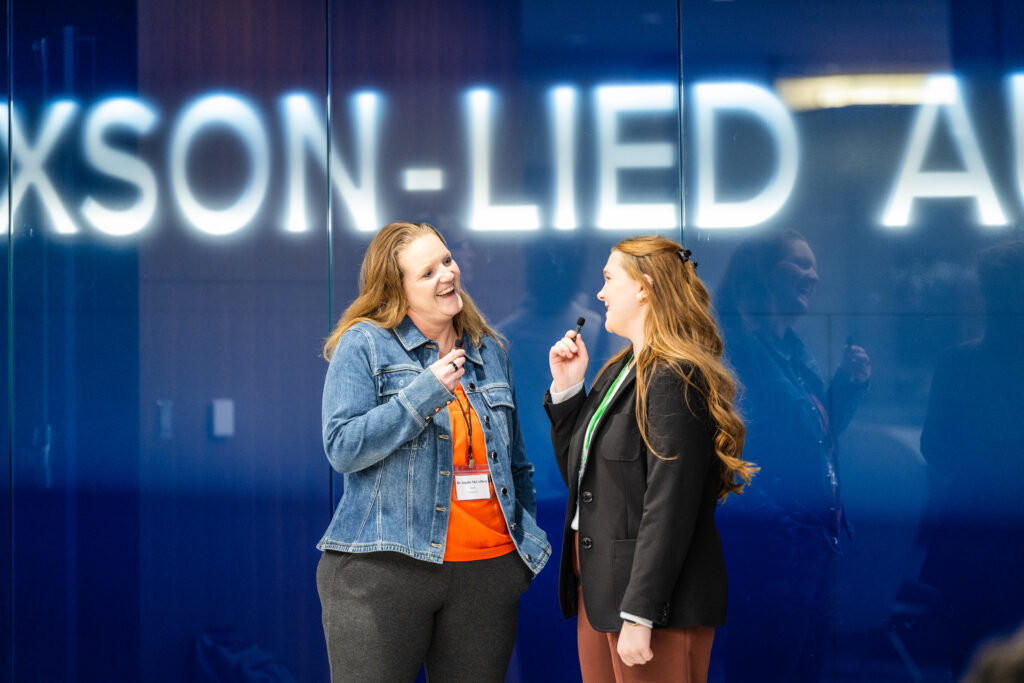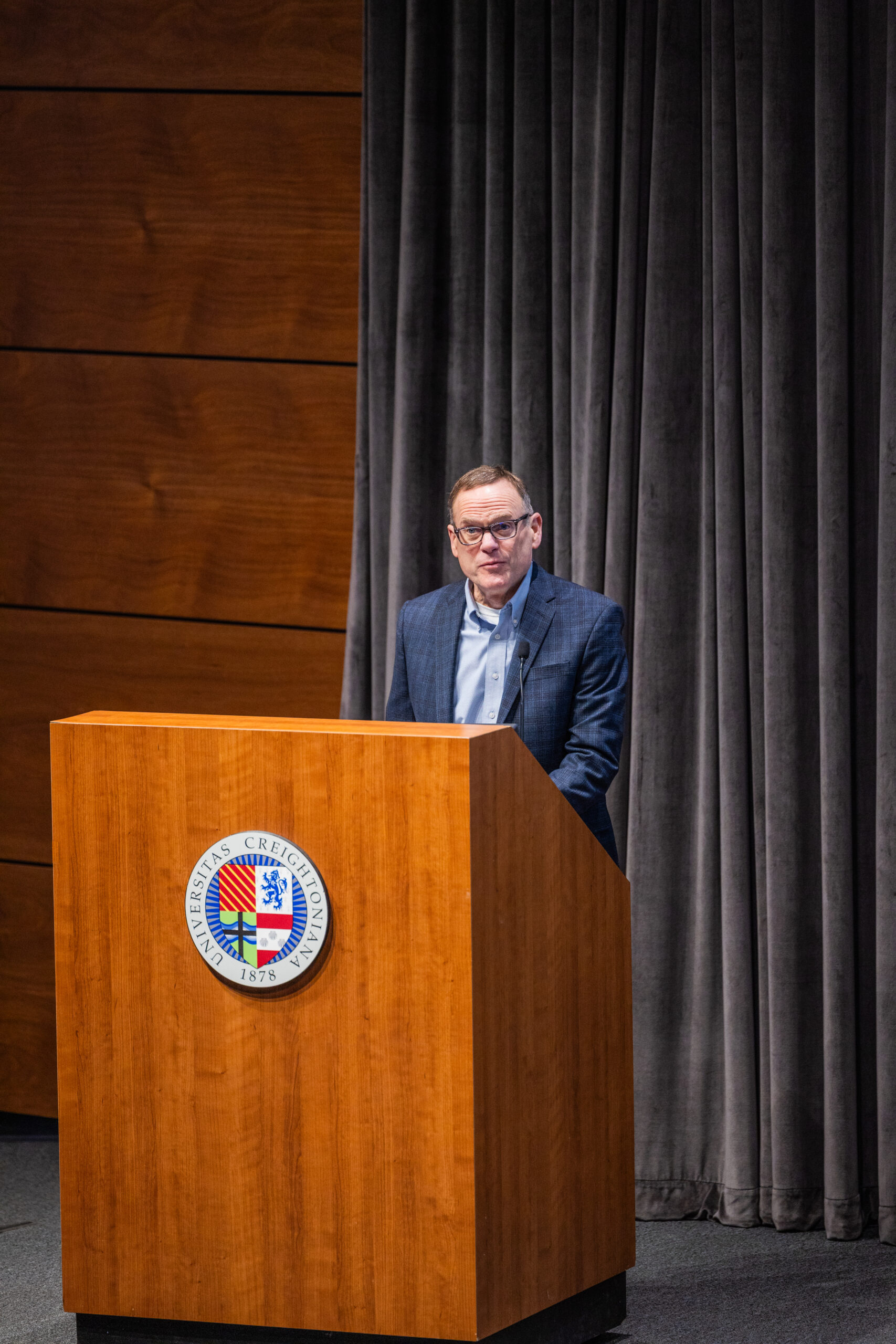Healthcare accessibility, treatments and advancements have always been topics talked about on the global stage. However, since the recent COVID-19 pandemic, individuals across many healthcare fields are working towards finding new solutions, cures and technologies that can better protect the world from these dangers.
From Jan. 31 until Feb. 1, Omaha’s Creighton University shed its own light on the subject as it held the 2025 Global Health Conference Midwest: Reframing Our Homes: People, Places and the Planet.
“Many of us can become fairly isolated in terms of our experiences and viewpoints. As such, I think it is always important to listen to others, their stories and their perspectives to broaden our views and enhance our understanding and empathy for what others are experiencing,” Michael Kavan, Ph.D., the Creighton University School of Medicine’s associate dean for student affairs, said. “In doing this, we hope the conference will inspire attendees to lean into others’ experiences and then advocate for a better place for all.”
During the two-day conference, undergraduates of Creighton and other midwestern schools, along with health students, healthcare professionals and community health organizations, were exposed to an array of presentations. Each acknowledged a significant issue identified within the realm of health and actions that attendees could take to aid in combating such obstacles.
“This conference is an interprofessional effort to address health disparities among marginalized populations nationally and internationally,” Kavan said. “We hope that through education, advocacy and service, we can raise awareness of global issues by engaging our health professions students and those in the community to partner with those who are made vulnerable.”
According to Kavan, the conference’s theme was presented in light of the recent passing of a former U.S. president, Jimmy Carter. The theme of the event interprets the term “home,” utilizing three major components–people, places and the planet; it represents an understanding of health that expands far beyond its physical concepts. Echoing the theme, speakers of the conference brought forth different concerns that showcased the significance and relevance of each pillar.
“I mentioned in my opening welcome that former [U.S.] President Jimmy Carter recently died in December. He was known for his commitment to Habitat for Humanity, which is not only about building homes but [also] assuring people are welcome and feel comfortable in those homes. Therefore, the conference’s plenary speakers focused on [the theme of] ‘home’ by discussing domestic violence issues, ‘places’ by discussing homelessness and ‘the planet’ by discussing the urgency of dealing with planetary health,” Kavan said. “President Carter truly modeled the value of ‘home’ both here and abroad, as evidenced by his work passing legislation on Native American issues, as well as his commitment to world peace and global health issues.”

Among these notable presentations was a keynote speech from Kandis McCafferty, Ph.D., titled “Home Is Where the Heart Is…But…What Exactly Does That Mean?” and a breakout speech, titled “Home & Health” by Charles Filipi, MD.
Alongside McCafferty were many other distinguished voices from across the Omaha area and the country, including Trisha Prabhu, the founder and CEO of ReThink, a global movement and mobile app designed to allow its users to rethink and make well-thought-out decisions when communicating with others online. Ninety-three percent of the time, the interface is successful in having its users, between ages 13-18, alter their previous message before sending it out.
“What we actually do is replace that keyboard with a specialized ReThink keyboard…that, as you’re typing in the moment, [detects phrases that], based on combinations of keystrokes, decides, ‘Oh, you know, that might be potentially offensive,’” Prabhu said. “And so, once you hit a specific letter and it’s detected [potential offenses]…it will then prompt you with an alert that goes, ‘Whoa, hold on. Are you sure you want to say that?’ And we find that, overwhelmingly, for youth ages 13 to 18, they decide to reword or to not send the message.”
Beginning as an 8th grade science fair project, ReThink stemmed from Prabhu’s awareness of the prevalence of cyberbullying and negative engagements on online platforms, which she gained through personal experience, friends and community members. She presented on the importance of awareness and the need for individuals to undergo measures to ensure that they are creating a safe and positive online space.
“It affects youth today significantly because, for a generation that is so digitally connected, we are so emotionally disconnected. … [Reported youth] are in constant communication with their friends, but they don’t feel fully loved by their friends, and they don’t feel like they have rich, meaningful relationships with their friends,” Prabhu said. “So, when you take that and…[add] all the harms that come with the digital world, the thoughtlessness, the inability to have real, meaningful, vulnerable conversations with people. It just leaves me worried that young people are not feeling emotionally supported. … So, I think young people today are struggling. And I think cyber bullying…[and] a lack of awareness of how important what we say online is a big part of that.”
According to Prabhu, the conference’s theme and approach to addressing global health has enabled her to present her concerns through a lens that encompasses more than just the typical aspects that define this broad field of study.
“It was an honor to be able to do it [hold this conference] at Creighton University, but I also just love the theme of the conference and this more holistic vision of health–thinking about health at an individual level but also at a planetary level,” Prabhu said. “And so, I just thought this is such a great opportunity to adopt a different perspective…one that’s missing but so important as we consider really pressing issues like cyberbullying.”
Prabhu and Kavan both agree that the 2025 GHCM provided the opportunity to equip its attendees with a larger, deeper understanding of the factors impacting health so they may be able to enact solutions to better aid their communities.
